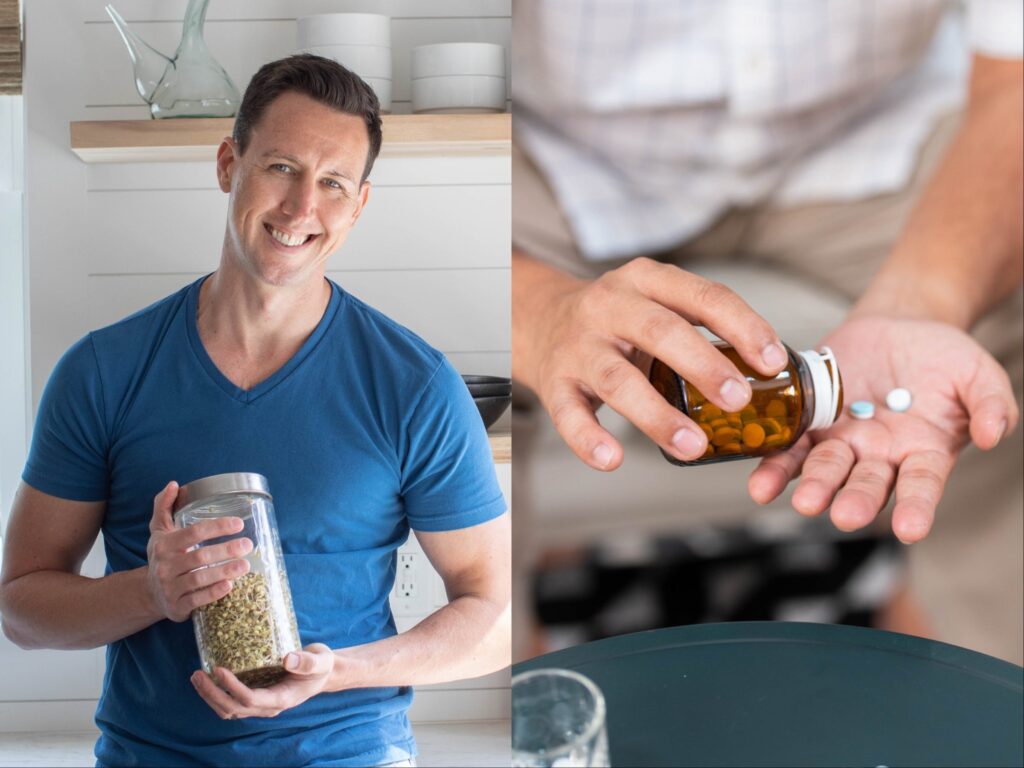- Gastroenterologist Dr. Will Bulsiewicz said we shouldn't rely on supplements for good health.
- Instead, supplements should "fill in the gaps" in a good diet.
- He takes three supplements each day, including vitamin D.
A gastroenterologist shared the three supplements he takes every day with Business Insider.
The global supplement industry is projected to be worth almost $200 billion by 2025, but Dr. Will Bulsiewicz, who is also the US medical director of the nutrition company ZOE, tries to get most of his nutrients from his food.
"I would never say take supplements instead of eating a healthy salad or something like that. Have your food, make sure you have enough fiber and a diversity of plants, and then compliment it with supplements that are targeted to achieve a specific health effect," he said.
"Supplements are beneficial when they're not in competition with food," he said, so he takes these three "thoughtful and targeted" supplements every day.
Vitamin D
Some biohackers attempting to live for as long as possible pop vitamin D for longevity, partly because it helps the body absorb calcium and improves bone health.
Most of us get enough vitamin D from the sun, Ryan Andrews, a registered dietitian, previously told Business Insider.
But Bulsiewicz takes it to make sure he's getting enough even in the winter when there's less sunlight.
You can also get vitamin D from fatty fish such as trout, salmon, tuna, and mackerel, fortified milk, and mushrooms.
Omega-3
Bulsiewciz eats a plant-based diet, so he opts for algae-based supplements, but you can also get omega-3 from fish oils.
Omega-3 fatty acids perform essential functions in the body, such as aiding cell, eye, and heart health, and the development of fetuses in the womb. Experts aren't sure whether fish oil supplements help our health, or whether the benefits come from the combination of nutrients found in whole fish. But a large 2018 study found that taking omega-3 supplements could be beneficial for people who don't eat fish.
As well as fatty fish, omega-3 is also found in foods including nuts and seeds such as flaxseed and walnuts, plant oils such as soybean and canola, and fortified products.
Prebiotics
Prebiotics are substances that feed gut bacteria, and prebiotic supplements aim to improve the balance of these bacteria — although the health benefits of these supplements haven't been proven.
Bulsiewicz said you shouldn't "try to out-supplement a bad diet" because "you can't go from a C-minus gut to an A-plus with supplements alone."
You need to have a good diet as a base, and then you can "fill in the gaps" with supplements, he said.
You can get prebiotics in foods such as leeks, garlic, onions, asparagus, and black-eyed peas.
Dit artikel is oorspronkelijk verschenen op z24.nl
